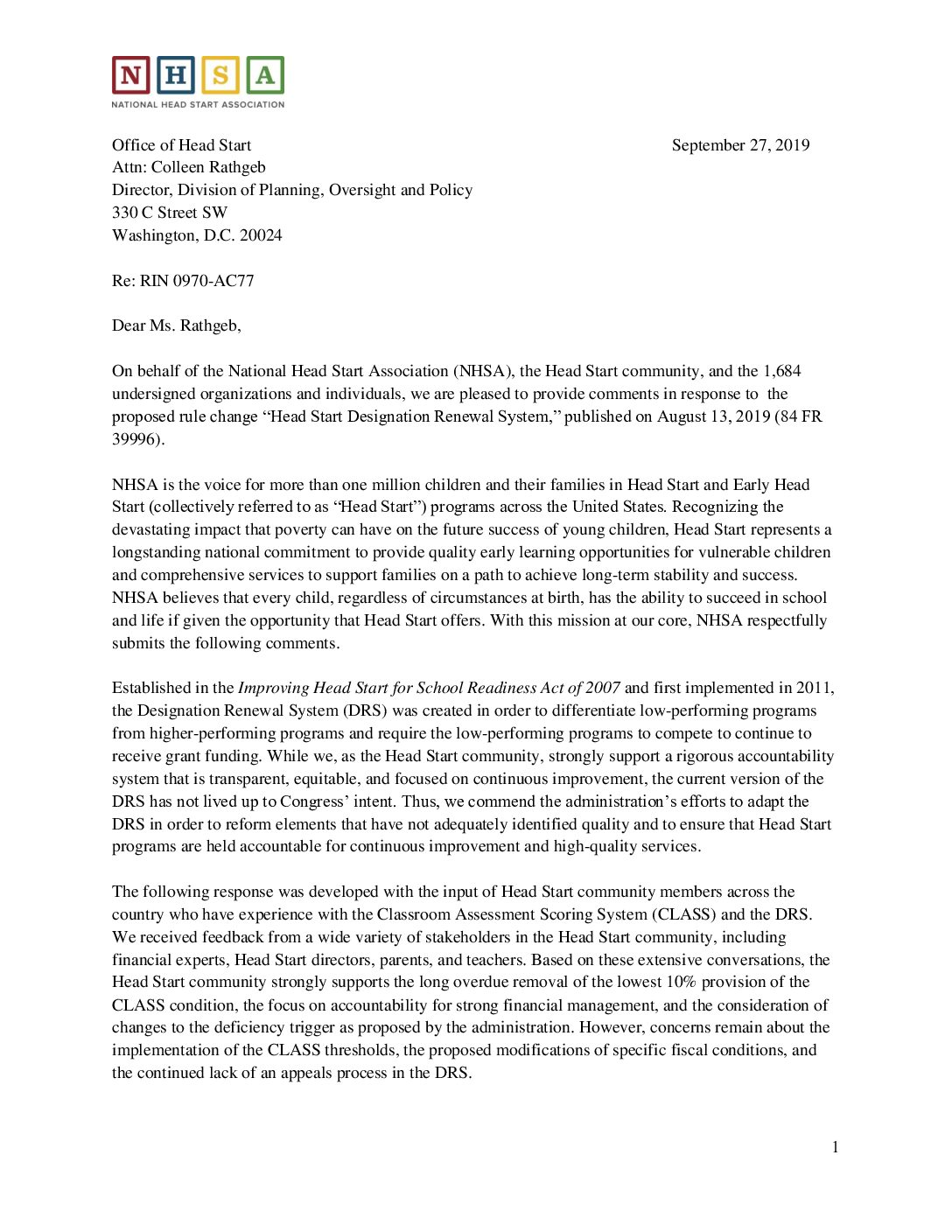FFYF Joins Call for Specific Improvements to Head Start Designation Renewal System
Last week, FFYF joined with advocates to provide comments on proposed changes to the Head Start Designation Renewal System (DRS), which the Administration for Children and Families (ACF) uses to determine whether grantees must recompete for funding. The comments, led by the National Head Start Association, strongly support the removal of a condition that unfairly assessed grantee quality based on Classroom Assessment Scoring System (CLASS) domains. In brief, this condition has required high-quality grantees to recompete not on the basis of their own quality, but because their scores were considered relative to other grantees. The proposed change will provide more certainty to programs with no deficiencies that they won’t be required to recompete, allowing them to focus on serving their communities. The comments also express support for the higher thresholds in the Classroom Organization and Emotional Support domains.
Across all domains, the comments encourage ongoing research on the connection between thresholds and increased positive child outcomes to ensure the thresholds are evidence-based. In the Instructional Support domain, research is not conclusive on how specific scores relate to outcomes; thus, the comments recommend keeping the current threshold and providing additional teaching and technical assistance to programs with certain scores. Further, to give new teachers adequate time to acclimate to Head Start classrooms, build relationships with their students, and understand the CLASS monitoring system, the comments recommend giving them six months, rather than ten days, before they can be observed for monitoring purposes.
Additionally, ACF proposes to amend a number of requirements triggering recompetition around audit findings, which the community supports. ACF also sought comment on whether to change the single deficiency condition that triggers recompetition to two or more deficiencies. The comments support such a change, noting that the deficiency determination process does not effectively differentiate systemic issues from a single mistake.
The comments conclude with a discussion of the need for a formal appeals process to give grantees an avenue to express concerns, reevaluate findings, and provide feedback and opportunities for improvement of the DRS, as well as the need for broader reforms to the DRS that allow for identification of program strengths (positive outliers in absolute performance, innovative programming, and high rates of improvement) and help other grantees to learn from their practices.
The full text of the letter appears below.
Subscribe to FFYF First Look
Every morning, FFYF reports on the latest child care & early learning news from across the country. Subscribe and take 5 minutes to know what's happening in early childhood education.




